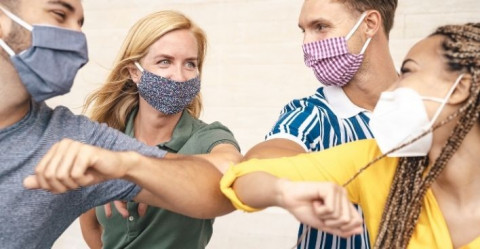
GCED Basic Search Form
Quick Search
현재 위치
뉴스

Whilst underscoring humanity’s interconnectedness and interdependency, COVID-19 has also led to a rise in discrimination, inequality, and vulnerability, putting pressure on the capacities of societies for intercultural understanding at a time where solidarity and cooperation are needed more than ever. Exploring these themes, a new UNESCO brief has been released examining both the impact of COVID-19 on intercultural relations and the creative responses undertaken to strengthen cross-cultural cooperation within this unprecedented context.
Highlighting several core areas of impact which threaten intercultural understanding during the pandemic – from the rise of xenophobia and ethnocultural racism to increases in gender-based violence – the brief echoes various of the UN Secretary-General’s messages which underscore the need to address structural injustices in order to foster more effective and cohesive responses to, and recovery from, the crisis. It identifies the availability of online platforms as a key means through which governments, practitioners, and communities have managed to create effective solutions through which to continue intercultural learning and exchange during the crisis. Categorizing the responses into four key areas – from the use of innovative artistic mediums to promote intercultural learning, to anti-racist activism through social media – the brief highlights the dynamic and creative good practices that have emerged through necessity during the crisis.
Looking ahead, the brief posits that the “emerging post-COVID-19 world will be shaped by new dynamics and complex realities immersed in virtual inter-connectivity and driven by cross-sectoral engagements. To this end, the intercultural dialogue agenda will have a significant role to play in developing a new socio-cultural compact that will contribute to shaping the way we live, work, connect and engage across national, ethnic, and civilizational lines.” To this end, recommendations to policy-makers and practitioners are suggested to both maintain intercultural exchange during the crisis, and respond to the lessons of the pandemic, including strengthening human rights protections (as a fundamental foundation of intercultural exchange), bolstering structures to support civic exchange, and deliberation, and addressing social inequalities that can fuel discrimination and marginalisation.
Contact: interculturaldialogue@unesco.org
URL:
https://en.unesco.org/news/intercultural-dialogue-during-pandemic-impact-and-response
